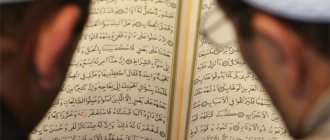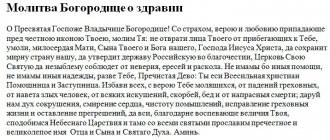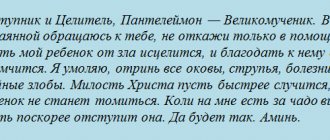All nations have developed their own magical tools. Some of them are based on religious traditions. Let's discuss what a dua for fulfillment of desires is and how to use it. Can everyone read Muslim prayers? Does Islam help Orthodox Christians? Dua for the fulfillment of desires is based on the Muslim worldview, can representatives of another religion apply to it?
What is dua for fulfillment of desires?
In fact, this is the name of a special prayer that a believer addresses to Allah. Dua for fulfillment of desires is written in the Koran. It is called briefly Salavat. It is, of course, not forbidden for anyone to read it, like any prayer. But there are certain restrictions imposed by religion itself on the one who turns to the Holy Book of Muslims.
According to tradition, Allah helps those who are completely devoted to him. There is much more obedience and respect in Islam than in any other religion. When a dua is read to fulfill desires, it is unacceptable to “dictate” your will to higher powers.
Prayer in Islam is a humble request to the Almighty for mercy. This is different from other religions. From childhood, Muslims are brought up in a different worldview paradigm. Everything in the world happens according to the will of Allah, they believe. And his decisions should be accepted with gratitude and respect. Whatever a person wants, he will only get what the Almighty gives him. Therefore, dua is pronounced with a sense of predetermination of events. A believer cannot protest or insist (mentally) on the desired result. This is the philosophical difference between dua and Christian prayer.
Ways to perform Hajjat prayer
In one of the hadiths transmitted from Imam Zeinullabidin, it is recommended to perform the Hajjat prayer in 4 rak'ahs. In the first rak'ah the surahs "al-Fatiha" and "az-Zilzal" are read, in the second - "al-Fatiha" and "an-Nasr", in the third - "al-Fatiha" and "al-Kafirun", and in the fourth - “al-Fatiha” and “al-Ikhlas”. At the end, you need to raise your hands to the sky and read this prayer (the translation of the prayer is given): “Oh, Allah! For the sake of Your names, through which the closed gates of heaven are opened. Oh Allah! For the sake of Your names, through which constraint is transformed into freedom. Oh Allah! For the sake of Your names, through which the gates of difficulties will open with ease. Oh Allah! For the sake of Your names, through which the graves will open. May Your goodness descend upon Muhammad ﷺ and his family! Accept (fulfill) my wish!”
In another legend, a needy person is recommended to perform a prayer of two rak'ahs at midnight (preferably on Friday night), and then read the following prayer 70 times: “Ya Absaran-Nazirin, ya Asraal-Khasibin, ya Asmaas-Samiin, ya Akramal-Akramin, ya arhamar-rahimin, ya ahkamal-hakimin" translation: "O, the best of all those who observe, oh, who settles scores before everyone else, oh, the best of all who hear, oh, the most worthy of all worthy, oh, the merciful of all the merciful, oh, the fairest of all judges!” In some traditions, in the first rakah of the Hajjat prayer after Surah Fatiha, it is recommended to read “verse al-Kursi” three times, and in the remaining rakats after Surah al-Fatiha, read Surahs al-Ikhlas, al-Falak and an -Us". After prayer, it is recommended to praise Allah, say Salawat to the Prophet ﷺ and his family, and then ask for your wishes.
Text
Many people face one important problem when they want to cast a spell in a Muslim way. The fact is that the dua must be read in the language of writing, that is, in Arabic. Otherwise nothing will work. Believers master this language, learn to read correctly and understand the meaning of words. An ordinary person does not have such skills. What to do? You can, of course, read the prayer written in Cyrillic.
She is like this:
“Inaa lil-lyahihi wa inaa ilyayahi raajiiuun, allaahuumma indayakya ahtasibu musyybaatii fajuurni fiihe, wa abdilnii biihee hairan minhe.” One thing is bad, you won’t understand anything. Therefore, it is also recommended to keep the translation in mind.
It is like this:
“I truly praise the Lord of the worlds alone - Allah. I ask You, most merciful, to bring the effectiveness of Your forgiveness closer to me. Protect from sins, guide along the path of righteousness. Please, show me the mistakes so that I can avoid them with Your grace. Get rid of all sins, needs and worries. Let there be nothing in life that You do not consider right for me, Most Gracious Allah!”
This is a very strong dua for the fulfillment of a wish.
How to perform Hajjat prayer
The hadiths provide various options for performing the Hajjat prayer. Usually, this prayer is performed in 2 or 4 rak'ahs. It is recommended to perform Hajjat prayer at night, and before prayer, perform a great ablution (ghusl), dress neatly, and put on perfume. In some traditions, it is recommended to perform this prayer in the open air (in the courtyard or roof). The following tradition is conveyed from the Prophet Muhammad ﷺ: “A person who has a desire from Allah or some person must perform ablution properly, perform a two-rak'ah prayer, praise Allah, and say Salawat to the Prophet. Then say the following prayer: “There is no god but Allah... He is the bestower and the patient. Allah, the owner of the highest throne, is far from all faults. Glory to Allah, owner of the worlds! Oh Allah! I ask you, grant me Your mercy, forgiveness, from Your kindness, protect me from all sins. Do not leave behind me unforgivable sins. Don't send me difficulties that you can't alleviate. Do not send me a need that would not contribute to Your satisfaction. O most generous of all generous ones!” (“Sunanut-Tirmidhi”).
All possibilities are in your soul
It is important to understand that you should only pray when you fully share the Muslim worldview. Tricks won't help here. Since they decided to ask for Allah’s help, therefore, they agree with any of his decisions regarding their fate and future events. But no one guarantees the result. Ask any Muslim about this.
A believer may not even understand the question. In his view, not a single person has the right to resist the will of the Almighty. That is, you should ask your soul whether you agree with this formulation of the question? If yes, then read the following recommendations. They apply only to representatives of other religious groups.
Pronunciation time
The first time the prayer should be said early in the morning. According to Muslim tradition, the first appeal to the Almighty should be made at 5 am, before sunrise. Before asking Allah, you need to thank him for everything he does. You can repent of the sins that you have committed. The midday prayer should be at a time when the sun is heading towards its zenith.
Prayer in the evening should be shortly before the sun goes down. Be sure to start it before the daylight touches the horizon. It is better to recite sacred texts in the dark. Midnight is optimal for them. If a person goes to bed early, then the ideal time would be just before falling asleep.
It is important to try to use five repetitions. This is prayer. With its help, Muslims thank Allah. Before praying, be sure to wash your face and hands. The body should be as clean as possible. It is recommended to take a shower before beginning to say prayer words. Muslims believe that when communicating with the Almighty, you need to have not only crystalline thoughts, but also a clean body.
Visualize your desire. It needs to be presented in more detail. Every detail must be thought out to the smallest detail. If this is not done, you can achieve the opposite effect from the most powerful Muslim prayer.
Don't just pray and do nothing after that. Move towards your dream. Even small steps can bring you closer to your long-awaited goal, especially if they are taken together with prayer texts.
How to use dua
To fulfill wishes in Islam, it is still customary to pray in Arabic. And there is also a rule: older members of the clan help the younger ones. In general, Muslims are great collectivists. Dua read by the community works faster and better. In any case, this is how they pray over the sick. And to remove the damage, older women from all over the area gather. At night they read suras over the sufferer. Therefore, it is recommended to find yourself a Muslim teacher.
- First, in the process of communication, become imbued with the philosophy of this religion.
- Secondly, this person will help you speak words correctly and tell you how and what to do.
Description alone is not enough to achieve effect. In addition, the prayer should be written down. In Islam, Arabic words are given great importance. Surahs are depicted on souvenirs and written on expensive fabric. If you buy one and hang it at home, it will work as a talisman or talisman.
Rules for prayers
Muslim prayer is a special type of magic. In order for your wish to come true as soon as possible, you should follow some instructions. You need to use only the right prayers. This may change their properties.
Experts say that the most effective sacred texts that will help in one day are those created on your own. This way a person will be able to take into account more details that are specific to his problem. It is forbidden to use the particle “not”. It remains invisible, so higher powers do not perceive the denial, but do it as they would without this part of speech.
For powerful Muslim prayer to work, you need to get rid of all your inner demons. If a person is subconsciously afraid of something, this can prevent him from fulfilling his desires. The body should be prepared:
- rationalize your diet. It is necessary to eat only healthy foods of plant origin, meat consumption should be limited;
- you need to drink more water. It cleanses the body's cells, making a person more receptive to energy flows;
- need more sleep. The duration of rest for a strong Muslim prayer to take effect in a day must be at least 8 hours;
- It is very important to devote time to sports. Without stress, the body will become weak and sick, and it will not have enough energy for powerful petition;
- devote yourself to creativity - this affects the state of the soul, cleansing it and opening it to the energy of fulfilling desires.
The most powerful texts are those that are read directly in the original language, so if possible, it is better to learn Arabic pronunciation.
The most powerful dua for fulfillment of desires
No matter how much you give to a person, it is not enough for him. People are wondering how to pray so that their wishes come true. There are many surahs in the Koran. Read everything in order. Start with the first one. It is called “Prayer to the Almighty.” Then refer to the above dua. Next is necessarily suras 112 and 113. They protect from evil that comes from outside and is inside. However, it is not at all necessary to resort to such difficulties.
If there is faith in the heart, blind and genuine, then one prayer is enough. Forget about the result, like a child does. Express your intention and wait for what will happen with sincere delight. Imams say that this is how all dreams come true. It's not about the number of surahs read, but about trust in the Almighty.
Deeds of Umm Dawood to fulfill any desire
On the 15th of Rajab, it is recommended to perform “Amal Umm Dawood” (“The Acts of Dawood’s Mother”). Umm Dawood is Fatima, the mother of the great-grandson of Imam Hasan (A) Dawood. One day she visited Imam Sadiq (A). He asked her about her son Davud. She said she didn't know where he had gone and didn't even know if he was alive or dead. Then Imam Sadiq (A) taught her a special program of actions related to the secrets of Ahl ul-Bayt (A). Those who complete this program will receive a quick response to their requests and will find a quick solution to their needs. Umm Dawood performed this program on the 15th of Rajab. Imagine her surprise when the next day her son knocked on the door of the house! It turned out that all these years he was kept in the caliph's prison with chains on his neck, arms and legs. Suddenly guards came to the prisoner, took him to Caliph Mansur, and he ordered his release.
It should be noted that this program can be performed in any month, but the best time to perform it is the 13th, 14th and especially the 15th of Rajab.
Imam Sadiq (A) said: “Do not teach this program of actions to everyone, for he can use it for forbidden purposes. It contains the great name of Allah, and the desires of everyone who performs it will be fulfilled, even if all the doors of heaven and earth are closed and all people and jinn rise up against the one who performs it.”
This program is executed as follows. On the 13th, 14th and 15th of Rajab one should fast. When the time for midday prayer arrives on the 15th, you should make ghusl, and then retire to a place where nothing will distract you, and read the midday and afternoon prayers as best you can. Then, facing the qibla, you need to read Surah Fatihah a hundred times, Surah Ikhlyas a hundred times and the verse Kursi ten times. Then you need to read the following suras once at a time: “Cattle”, “Transferred by Night”, “Cave”, “Lukman”, “Ya.Sin”, “Standing in a Row”, “Ornaments”, “Advice”, “Smoke”, “Victory”, “Falling”, “Power”, “Writing Reed”, “Splitting” - and then all the suras following Surah “Splitting” until the end of the Quran.
If a person is not able to recite all these surahs, he can recite Tasbihat Arbaa 100 times, Surah Fatiha 100 times, Kursi verse 10 times, Salawat 100 times and Surah Ikhlas 1000 times.
Tasbihat arbaa:
| سُبْحَانَ ٱللَّهِ | subhāna llāhi | Glory be to Allah, |
| وَٱلْحَمْدُ لِلَّهِ | wal-hamdu li-llāhi | and praise be to Allah, |
| وَلاَ إِلٰهَ إِلاَّ ٱللَّهُ | wa lā ilāha illā llāhu | and there is no god but Allah, |
| وَٱللَّهُ ا كْبَرُ | Wallahu Akbar | and Allah is above all! |
After this, you need to read the following dua, also pointing your face towards the qibla:
(Attention: If you cannot read Arabic, listen to this dua on the recording, following the transcription and translation).
In the name of Allah, the Gracious, the Merciful!
O Allah, bless Muhammad and the family of Muhammad!
| صَدَقَ ٱللَّهُ ٱلْعَظِيمُ | ŝadaa llāhu l-Ažѣm | Allah the Great has spoken the truth, |
| ٱلَّذِي لاَ إِلٰهَ إِلاَّ هُوَ | Allahi lā ilāha illā huva | besides whom there is no other god, |
| ٱلْحَيُّ ٱلْقَيُّومُ | al-hayyu l-ќayyumu | Alive, Eternal, |
| ذُو ٱلْجَلالِ وَٱلإِكْرَامِ | ӟul-jali val-ikrāmi | Possessor of glory and bounty, |
| ٱلرَّحْمٰنُ ٱلرَّحِيمُ | ar-rahmanu rrahim | Gracious, Merciful, |
| ٱلْحَلِيمُ ٱلْكَرِيمُ | al-halim l-karim | Patient, Forgiving, |
| ٱلَّذِي لَيْسَ كَمِثْلِهِ شَيْءٌ | allai laisa ka-miҫlihi shay'un | To which nothing is like, |
| وَهُوَ ٱلسَّمِيعُ ٱلْعَلِيمُ | wa huwa ssamiau l-Alimu | and He is the Hearer, the Knower, |
| ٱلْبَصِيرُ ٱلْخَبِيرُ | al-baŝӣru l-ḣabiru | Seer, Knower! |
| شَهِدَ ٱللَّهُ ا نَّهُ لاَ إِلٰهَ إِلاَّ هُوَ | shahida llāhu annahӯ lā ilāha illā huva | Allah has brought testimony that there is no god but Him, |
| وَٱلْمَلائِكَةُ وَ ا وْلُو ٱلْعِلْمِ | val-malā'ikatu wa ulul-Ailmi | and angels and possessors of knowledge. |
| قَائِماً بِٱلْقِسْطِ | ќā'iman bil-isti | He upholds His creatures with justice. |
| لاَ إِلٰهَ إِلاَّ هُوَ ٱلْعَزِيزُ ٱلْحَكِيمُ | lā ilāha illā huwa l-Azizu l-hakimu | There is no god but Him, the Great, the Wise, |
| رُسُلُهُ ٱلْكِرَامُ | va ballagat rusuluhul-kiramu | and His noble messengers to convey (revelation) from Him, |
| وَا نَا عَلَىٰ ذٰلِكَ مِنَ ٱلشَّاهِدِينَ | va ana Alā ӟālika mina shshāhidina | and I am one of those who testify to this. |
| اللَّهُمَّ لَكَ ٱلْحَمْدُ | Allahumma laka l-hamdu | O Allah, praise be to You, |
| وَلَكَ ٱلْمَجْدُ | wa laqa l-majdu | glory to you, |
| وَلَكَ ٱلْعِزُّ | wa laka l-Aizzu | and greatness belongs to You, |
| وَلَكَ ٱلْفَخْرُ | wa laka l-faḣru | and the pride belongs to you, |
| وَلَكَ ٱلْقَهْرُ | wa laka l-ќahru | and the power belongs to you, |
| ولَكَ ٱلنِّعْمَةُ | wa laka nniAmatu | and the good belongs to You, |
| وَلَكَ ٱلْعَظَمَةُ | wa laka l-Ažamatu | and greatness belongs to You, |
| وَلَكَ ٱلرَّحْمَةُ | wa laka rrahmatu | and mercy belongs to You, |
| وَلَكَ ٱلْمَهَابَةُ | wa laka l-mahābatu | and vengeance belongs to you, |
| وَلَكَ ٱلسُّلْطَانُ | va laka ssultānu | and the power belongs to you, |
| وَلَكَ ٱلْبَهَاءُ | wa laka l-bahā'u | and the radiance belongs to You, |
| وَلَكَ ٱلاِمْتِنَانُ | wa laka l-imtinānu | and the endowment belongs to You, |
| وَلَكَ ٱلتَّسْبِيحُ | wa laka tasbihu | and to You belongs the praise, |
| وَلَكَ ٱلتَّقْدِيسُ | wa laka taќdisu | and holiness belongs to You, |
| وَلَكَ ٱلتَّهْلِيلُ | wa laka tahlilu | and to You belong the words “there is no god but Allah”, |
| وَلَكَ ٱلتَّكْبِيرُ | wa laka ttakbiru | and the words “Allah is above all” belong to You, |
| وَلَكَ مَا يُرَىٰ | wa laka mā yurā | and to You belongs that which is visible, |
| وَلَكَ مَا لاَ يُرَىٰ | wa laka mā lā yurā | and what is invisible belongs to You, |
| وَلَكَ مَا فَوْقَ ٱلسَّمَاوَاتِ ٱلْعُلَىٰ | wa laka mā fauja ssamāvāti l-Aulā | and to You belongs that which is higher than the highest heavens, |
| وَلَكَ مَا تَحْتَ ٱلثَّرَىٰ | va laka mā tahta ҫҫara | and to You belongs that which is below the damp earth, |
| وَلَكَ ٱلا رَضُونَ ٱلسُّفْلَىٰ | wa laka l-arazүna ssoufla | and the lower lands belong to You, |
| وَلَكَ ٱلآخِرَةُ وَٱل ا ولَىٰ | wa laka l-āḣiratu val-ӯlā | and the future and the present life belongs to You, |
| وَلَكَ مَا تَرْضَىٰ بِهِ مِنَ ٱلثَّنَاءِ وَٱلْحَمْدِ | wa laka mā tarzā bihi mina ҫҫanā'i val-hamdi | and to You belongs that which You are pleased with from praise and glory, |
| وَٱلشُّكْرِ وَٱلنَّعْمَاءِ | wa shshukri wa nniAmā'i | out of gratitude and blessings! |
| The | Allāhumma ŝalli Alā jabra'īla | O Allah, bless Gabriel, |
| ا مِينِكَ عَلَىٰ وَحْيِكَ | aminika Alā vahyika | Your trustee over Your revelation, |
| وَٱلْقَوِيِّ عَلَىٰ ا مْرِكَ | val-jawiyi Alā amrika | steadfast in Your work, |
| وail.RuEXUNEL فOR فWUN فail.Ru &LCYnkاوicles وface وail.Ru كυult | val-mutāAi fi samāvātika va mahālli karāmātika | the one who is obeyed in Your heavens and places of Your mercy, |
| ٱلْمُتَحَمِّلِ لِكَلِمَاتِكَ | al-mutahammili li-kalimātika | bearer of Your words, |
| ٱلنَّاصِرِ لا نْبِيَائِكَ | an-nāŝiri li-anbiyā'ika | helper of Your prophets, |
| ٱلْمُدَمِّرِ لا عْدَائِكَ | al-mudammiri li-aAdā'ika | destroying Your enemies! |
| مِيكَائِيلَ | Allāhumma ŝalli Alā mikā'ila | O Allah, bless Mikail, |
| مَلَكِ رَحْمَتِكَ | malaki rahmatika | angel of Your mercy, |
| وَٱلْمَخْلُوقِ لِرَا فَتِكَ | val-maḣlӯќi li-ra'fatika | created for (the manifestation of) Your kindness, |
| The _ | val-mustagfiri l-muAini li-ahli tāAtika | asking for forgiveness and helping people to submit to You! |
| The | Allahumma ŝalli Alā isrāfila | O Allah, bless Israfil, |
| حَامِلِ عَرْشِكَ | hāmili Arshika | bearer of Your Throne, |
| وَصَاحِبِ ٱلصُّوْرِ | wa ŝāhibi ŝŝӯri | Holder of the Trumpet (Day of Resurrection), |
| ٱلْمُنْتَظِرِ لا مْرِكَ | al-muntažiri li-amrika | awaiting Your command, |
| ٱلْوَجِلِ ٱلْمُشْفِقِ خِيفَتِكَ | al-wajili l-mushfii min ḣӣfatika | trembling with fear before You! |
| The | Allāhumma ŝalli Alā hamalati l-Arshi ttāhirģna | O Allah, bless the most pure bearers of the Throne |
| امِ | wa Alā ssafarati l-kirāmi | and noble envoys, |
| ٱلْبَرَرَةِ ٱلطَّيِّبِينَ | al-bararati ttayibina | pure, good, |
| The | wa Alā malā'ikatika al-kirāmi l-kātibina | and Your noble recording angels, |
| وَعَلَىٰ مَلائِكَةِ ٱلْجِنَانِ | wa Alā malā'ikati l-jināni | and the angels of Paradise, |
| وَخَزَنَةِ ٱلنِّيرَانِ | va ḣazanati nnirāni | and guardians of the fires of hell, |
| وَمَلَكِ ٱلْمَوْتِ وَٱلا عْوَنِ | wa malaki l-mauti val-aAvani | and the angel of death and his assistants! |
| يَا ذَا ٱلْجَلاَلِ وَٱلإِكْرَامِ | yā ӟal-jali val-ikrāmi | O Possessor of greatness and generosity! |
| All rights reserved. | Allāhumma ŝalli Alā abīnā ādama | O Allah bless our father Adam, |
| بَدِيعِ فِطْرَتِكَ | badiAi fitratika | first in creation |
| بِسُجُودِ مَلائِكَتِكَ | allaӟӣ karramtahӯ bi-sujodi malā'ikatika | whom You honored with the bow of the angels before him |
| وَا بَحْتَهُ جَنَّتَكَ | va abahtahu jannataka | and whom Your Paradise has permitted! |
| All rights reserved . | Allāhumma ŝalli Alā umminā havvā'a | O Allah, bless our mother Eve, |
| ٱلْمُطَهَّرَةِ مِنَ ٱلرِّجْسِ | al-mutahharati mina rrijsi | cleansed from filth, |
| ٱلْمُصَفَّاةِ مِنَ ٱلدَّنَسِ | al-muŝaffāti mina ddanasi | pure from abomination, |
| ٱلْمُفَضَّلَةِ مِنَ ٱلإِنْسِ | al-mufazzalati mina l-insi | chosen among the people, |
| ٱلْمُتَرَدِّدَةِ بَيْسَ | al-mutardidati baina mahālli al-Yudsi | to which places of holiness are permitted! |
| The | Allāhumma ŝalli Alā hābīla va shayin | O Allah, bless Abel and Shays, |
| وَإِدْرِيسَ وَنُوحٍ | wa idrīsa wa nůhin | Idris and Nuha, |
| وَهُودٍ وَصَالِحٍ | va hudin va ŝālihin | Huda and Saliha |
| وَإِبْرَاهِيمَ وَإِسْمَاعِيلَ | va ibrahima wa ismaaila | Ibrahim and Ismail, |
| وَإِسْحَاقَ وَيَعْقُوبَ | wa iskhāќa wa yāќӯba | Isaac and Yaqub |
| وَيُوسُفَ وَٱلا سْبَاطِ | va yosufa val-asbāti | Yusuf and tribe |
| وَلُوطٍ وَشُعَيْبٍ | va lӯtin va shuaybin | Luta and Shueiba, |
| وَا يُّوْبَ وَمُوسَىٰ | wa ayyuba wa musa | Ayub and Musu, |
| وَهَارُونَ وَيُوشَعَ | wa hārůna wa yůshaA | Haruna and Yusha |
| وَمِيشَا وَٱلْخِضْرِ | va mishaa val-ḣizri | Misha and Khizra, |
| وَذِي ٱلْقَرْنَيْنِ وَيُونُسَ | wa ӟѣ l-ќarnaini wa yůnusa | Dhul-Qarnain and Yunus, |
| وَإِلْيَاسَ وَٱلْيَسَعَ | wa ilyasa val yasaA | Ilyas and Yasa, |
| وَذِي ٱلْكِفْلِ وَطَالُوتَ | va ӟӣ l-kifli wa tāluta | Zil-Kifla and Taluta, |
| وَدَاوُودَ وَسُلَيْمَانَ | wa dāvuda wa sulaimāna | Davud and Suleiman, |
| وَزَكَرِيَّا وَشَعْيَا | wa zakariyā va shaAyā | Zakariyu and Shaya, |
| وَيَحْيَىٰ وَتُورَخَ | va yahyā va turaḣa | Yahya and Turaha, |
| وَمَتَّىٰ وَإِرْمِيَا | wa mattā wa irmiyā | Matta and Irmiya, |
| وَحَيْقُوقَ وَدَانِيَالَ | wa hayќҜa wa dānyāla | Haykuk and Daniyal, |
| وَعُزَيْرٍ وَعِيسَىٰ | va Auzairin va Aisa | Uzeir and Isu, |
| وَشَمْعُونَ وَجِرْجِيسَ | va shamAuna wa jirjisa | Shamuna and Jirjis, |
| وَٱلْحَوَارِيِّينڎ _ | val-havariyina val-atbāAi | apostles and followers, |
| The | va ḣālidin va hanžalata va luќmāna | Khalid, Hanzal and Luqman! |
| The | Allahumma ŝalli Alā muhammadin wa āli muhammadin | O Allah, bless Muhammad and the family of Muhammad, |
| وail.Ruened inct inct inct Нً # وace feath inct inct inct inct inct inct | varham muhammadan wa ala muhammadin | and have mercy on Muhammad and the family of Muhammad, |
| ولlf wonderfullyك/ feathىٰ inctىٰ وail.RuL inct inct inct | wa barik Alā muhammadin wa āli muhammadin | and clothed Muhammad and the family of Muhammad |
| كَمَا صَلَّيْتَ وَرَحِمْتَ وَبَارَكْتَ عَلَىٰ إِبْرَاهِيمَ وَآلِ إِبْرَاهِيمَ | kamā ŝallayta wa rahimta wa barakta Alā ibrahāma valāli ibrahīma | how You blessed, had mercy and endowed Ibrahim and the family of Ibrahim: |
| إِنَّكَ حَمِيدٌ مَجِيدٌ | innaka hamidun majidun | verily, You are the Praised One, the Glorious One! |
| وْصِيَاءِ وَٱلسُّعَدَاءِ | allāhumma ŝalli Alā l-auŝiyā'i wa ssuAdā'i | O Allah, bless the successors and the happy ones, |
| وَٱلشُّهَدَاءِ وَا ئِمَّةِ ٱلْهُدَىٰ | va shshuhadā'i wa a'immati l-hudā | martyrs and imams of the straight path! |
| All rights reserved | Allāhumma ŝalli Alā l-abdāli wal-outādi | O Allah, bless the chosen ones and the saints, |
| وَٱلسُّيَّاحِ وَٱلْعُبَّادِ | va ssuyāhi val-Aubbādi | diligent in fasting and worship, |
| وَٱلْمُخْلِصِينَ وَٱلزُّهَّادِ | val-muḣliŝѣna va zzuhhādi | sincere and ascetic, |
| وَا هْلِ ٱلْجِدِّ وَٱلاِجْتِهَادِ | wa ahli l-jiddi wal-ijtihādi | people of desire and zeal, |
| وَٱخْصُصْ مُحَمَّداً وَا هْلَ بَيْتِهِ بِا فْضَلِ صَلَوَاتِكَ | vaḣŝuŝ muhammadan wa ahla baytihi bi-afzali ŝalavatika | and bestowed upon Muhammad and his Ahl ul-Bayt the best blessings |
| وَا جْزَلِ كَرَامَاتِكَ | va ajzali karāmātika | and the most generous mercies, |
| وَبَلِّغْ رُوحَهُ وَجَسَدَهُ مِنِّي تَحِيَّةً وَسَلاماً | wa ballig ruhahu wa jasadahu minni tahiyyatan wa salāman | and bring greetings and peace from me to his spirit and body, |
| وَزِدْهُ فَضْلاً وَشَرَفاً وَكَرَماً | wa zid-hu fazlan wa sharafan wa karaman | and add to him dignity, honor and favor, |
| حَتَّىٰ تُبَلِّغَهُ ا عْلَىٰ دَرَجَاتِ ا هْلِ ٱلشَّرَفِ | hattā tuballigahӯ ālā darajāti ahli ash-sharafi | so you will raise him to the level of people's honor |
| مِنَ ٱلنَّبِيِّينڎ | mina nnabiyina val-mursalina | of prophets and messengers |
| وَٱلا فَاضِلِ ٱلْمُقَرَّبِينَ | wal-afāzili al-mu'arrabina | and the best of those close to you! |
| اَللَّهُمَّ وَصَلِّ عَلَىٰ مَنْ سَمَّيْتُ وَمَنْ لَمْ ا سَمِّ | Allāhumma wa ŝalli Alā man sammaytu wa man lam usammi | O Allah, bless those whom I named and whom I did not name. |
| مِنْ مَلائِكَتِكَ وَا نْبِيَائِكَ | min malā'ikatika wa anbiyā'ika | of angels and prophets, |
| وَرُسُلِكَ وَا هْلِ طَاعَتِكَ | va rusulika va ahli tāAtika | messengers and people of submission, |
| وَا وْصِلْ صَلَوَاتِي إِلَيْهِمْ وَإِلَىٰ ا رْوَاحِهِمْ | va aŝil ŝalavati ilayhim va ilā arvahihim | and send blessings upon them and their spirits, |
| وَٱجْعَلْهُمْ إِخْوَانِي فِيكَ | wa jAlhum iḣvāni fika | and make them my brothers in You |
| وَا عْوَانِي عَلَىٰ دُعَائِكَ | wa aAvani Alā duAā'ika | and my helpers in my prayers to You! |
| All rights reserved . | Allāhumma inni astashfiAu bika ilaika | O Allah, I seek their intercession before You |
| وَبِكَرَمِكَ إِلَىٰ رَمِكَ | va bi-karamika ilā karamika | and I seek Your mercy through Your mercy, |
| وَبِجُودِكَ إِلَىٰ جُودِكَ | va bi-judika ilā judika | and Your bounty through Your bounty, |
| اِلَىٰ رَحْمَتِكَ | va bi-rahmatika ilā rahmatika | and Your mercy through Your mercy, |
| وَبِا هْلِ طَاعَتِكَ إِلَيْكَ | va bi-ahli tāAtika ilayka | and I ask You for the sake of people to submit to You! |
| All rights reserved . _ | wa as'aluka llāhumma bi-kulli mā sa'alaka bihi ahadun minhum | I ask You, O Allah, for everything that they asked You for |
| مِنْ مَسْا لَةٍ شَرِيفَةٍ غَيْرِ مَرْدُودَةٍ | min mas'alatin sharifatin gairi mardudatin | noble requests that are not rejected |
| وَبِمَا دَعَوْكَ بِهِ مِنْ دَعْوَةٍ مُجَابَةٍ غَيْرِ مُخَيِّبَةٍ | wa bimā dāuka bihi min dāvatin mujābatin gairi muḣayibatin | and get an answer! |
| يَا اللَّهُ يَا رَحْمٰنُ يَا رَحِيمُ | yā Allahu yā rahmanu yā rahāmu | O Allah! O Gracious One! O Merciful One! |
| يَا حَلِيمُ يَا كَرِيمُ يَا عَظِيمُ | yā halimu yā karimu yā Ažīmu | O Patient One! O Generous One! O Great One! |
| يَا جَلِيلُ يَا مُنِيلُ يَا جَمِيلُ | yā jalīlu yā munilu yā jamīlu | O Glorious One! O Bestower! O Handsome One! |
| يَا كَفِيلُ يَا وَكِيلُ يَا مُقِيلُ | yā kafilu yā vakilu yā muilu | O Surety! O Guardian! O Savior! |
| يَا مُجِيرُ يَا خَبِيرُ | yā mujiru yā ḣabiru | O Protector! O Knower! |
| يَا مُنِيرُ يَا مُبِيرُ | yā muniru yā mubiru | O Illuminating One! O Destroyer! |
| يَا مَنِيعُ يَا مُدِيلُ يَا مُحِيلُ | yā maniAu yā mudilu yā muhilu | O Impregnable One! O Giver of victory! O Approver! |
| يَا كَبِيرُ يَا قَدِيرُ يَا بَصِيرُ | yā kabiru yā yadīru yā baŝiru | O Great One! O Strong One! O Seer! |
| يَا شَكُورُ يَا بَرُّ | yā shakuru yā barru | O Thankful One! O Good One! |
| يَا طُهْرُ يَا طَاهِرُ | yā tuhru yā tāhiru | O Source of purity! O Purifier! |
| يَا قَاهِرُ يَا ظَاهِرُ | yā ќāhiru yā žāhiru | O Destroyer! O Manifest! |
| يَا بَاطِنُ يَا سَاتِرُ | yā bātinu yā sātiru | O Hidden One! O Coverer! |
| يَا مُحِيطُ يَا مُقْتَدِرُ | yā muhitu yā muytadiru | O Encompassing One! O Almighty! |
| يَا حَفِيظُ يَا مُتَجَبِّرُ | yā hafižu yā mutajabbiru | O Guardian! O Invincible! |
| يَا قَرِيبُ يَا وَدُودُ | yā yaribu yā vadadu | O Close One! O Lover! |
| يَا حَمِيدُ يَا مَجِيدُ | yā hamīdu yā majidu | O Praised One! O Glorious One! |
| يَا مُبْدِئُ يَا مُعِيدُ يَا شَهِيدُ | yā mubdi'u yā muAdi yā shahidu | O Creator! O Returner! O Witness! |
| يَا مُحْسِنُ يَا مُجْمِلُ | yā muhsinu yā mujmilu | O Good One! O Bestower! |
| يَا مُنْعِمُ يَا مُفْضِلُ | yā munAimu yā mufzilu | O Giver! O Rewarder! |
| يَا قَابِضُ يَا بَاسِطُ | yā ќābizu yā bāsitu | O Constrictor! O Expander! |
| يَا هَادِي يَا مُرْسِلُ | yā hādi yā mursilu | O Leader! O Sender! |
| يَا مُرْشِدُ يَا مُسَدِّدُ | yā murshidu yā musaddidu | O Guide! O Closing One! |
| يَا مُعْطِي يَا مَانِعُ | yā muAti yā māniAu | O Giver! O Forbidden One! |
| يَا دَافِعُ يَا رَافِعُ | yā dāfiAu yā rāfiAu | O Rejector! O Exalted One! |
| يَا بَاقِي يَا وَاقِي | yā bāќѣ yā vāќӣ | O Abiding One! O Guardian! |
| يَا خَلاَّقُ يَا وَهَّابُ | yā ḣallāќu yā wahhābu | O Creator! O All-Giver! |
| يَا تَوَّابُ يَا فَتَّاحُ | yā tavvābu yā fattāhu | O Receiver of repentance! O Opener! |
| يَا نَفَّاحُ يَا مُرْتَاحُ | yā naffāhu yā murtāhu | O Giver! O Calm One! |
| يَا مَنْ بِيَدِهِ كُلُّ مِفْتَاحٍ | yā man biyadihi kullu miftāhin | O He in Whose right hand are all the keys! |
| يَا نَفَّاعُ يَا رَؤُوفُ يَا عَطُوفُ | yā naffāAu yā ra'ůfu yā Atůfu | O Giver of Benefit! O Good One! O Good One! |
| يَا كَافِي يَا شَافِي | yā kāfi yā shāfi | O Sufficient One! O Healing One! |
| يَا مُعَافِي يَا مُكَافِي | yā muAāfi yā mukafi | O Healer! O Rewarder! |
| يَا وَفِيُّ يَا مُهَيْمِنُ | wafiyu ya muhayminu | O Reliable One! O Guardian! |
| يَا عَزِيزُ يَا جَبَّارُ | yā Azizu yā jabbaru | O Great One! O Destroyer! |
| يَا مُتَكَبِّرُ يَا سَلامُ يَا مُؤْمِنُ | yā mutakabbiru yā salāmu yā mu'minu | O Exalted One! O world! O Giver of security! |
| يَا ا حَدُ يَا صَمَدُ | yā ahadu yā ŝamadu | O One! O Self-sufficient! |
| يَا نُورُ يَا مُدَبِّرُ | yā nuru yā mudabbiru | O Light! O Manager! |
| يَا فَرْدُ يَا وِتْرُ | yā fardu yā vitru | O Unique One! O One! |
| يَا قُدُّوسُ يَا نَاصِرُ | yā Yuddusu yā nāŝiru | O Holy One! O Helper! |
| يَا مُؤْنِسُ يَا بَاعِثُ يَا وَارِثُ | yā mu'nisu yā bāAiҫu yā vāriҫu | O Source of blessings! O Sender! O Successor! |
| يَا عَالِمُ يَا حَاكِمُ | yā Aālimu yā hākimu | O Knower! O Judge! |
| يَا بَادِي يَا مُتَعَالِي | yā badi yā mutāāli | O Beginner! O Most High! |
| يَا مُصَوِّرُ يَا مُسَلِّمُ يَا مُتَحَبِّبُ | yā muŝavviru yā musallimu yā mutahabbibu | O Educator! O Giver of security! O Benevolent One! |
| يَا قَائِمُ يَا دَائِمُ | yā ќā'imu yā dā'imu | O Jehovah! O Eternal One! |
| يَا عَلِيمُ يَا حَكِيمُ | yā Alim yā hakimu | O Knower! O Wise One! |
| يَا جَوَادُ يَا بَارِئُ | yā javādu yā bāri'u | O Generous One! O Creator! |
| يَا بَارُّ يَاسَارُّ | yā barru yā sārru | O Good One! O Joyful One! |
| يَا عَدْلُ يَا فَاصِلُ | yā Adlu yā fāŝilu | O Just One! O Divider! |
| يَا دَيَّانُ يَا حَنَّانُ يَا مَنَّانُ | yā dayānu yā hannānu yā mannānu | O Judge! O Bestower! O Giver! |
| يَا سَمِيعُ يَا بَدِيعُ | yā samiAu yā badiAu | O Hearer! O Creator! |
| يَا خَفِيرُ يَا مُعِينُ | yā ḣafiru yā muAinu | O Observer! O Helper! |
| يَا نَاشِرُ يَا غَافِرُ | yā nāshiru yā gāfiru | O Expander! O Forgiver! |
| يَا قَدِيمُ يَا مُسَهِّلُ يَا مُيَسِّرُ | yā yadim yā musahhilu yā muyassir | O Eternal One! O Alleviator! O Permitting One! |
| يَا مُمِيتُ يَا مُحْيِي | yā mumitu yā muhyi | O Killer! O Giver of Life! |
| يَا نَافِعُ يَا رَازِقُ | yā nāfiAu yā rāziyu | O Giver of Benefit! O Nourisher! |
| يَا مُقْتَدِرُ يَا مُسَبِّبُ | yā muytadiru yā musabbibu | O Predeterminer! O Establisher of causes (for every thing)! |
| يَا مُغِيثُ يَامُغْنِي يَا مُقْنِي | yā muginu yā mugni yā muini | O Helper! O Enricher! O Bestower! |
| يَا خَالِقُ يَا رَاصِدُ يَا وَاحِدُ | yā ḣāliќu yā rāŝidu yā vāhidu | O Creator! O Observer! O Unique One! |
| يَا حَاضِرُ يَا جَابِرُ | yā hāziru yā jābiru | O Present One! O Corrector! |
| يَاحَافِظُ يَا شَدِيدُ | yā hāfižu yā shadīdu | O Guardian! O Mighty One! |
| يَا غِيَاثُ يَا عَائِدُ يَا قَابِضُ | yā giyāҫu yā Aā'idu yā ќābizu | Oh Help! O Giver! O Taker! |
| يَا مَنْ عَلاَ فَٱسْتَعْلَىٰ | yā man Alā fastālā | O He Who is exalted and exalted |
| فَكَانَ بِٱلْمَنْظَرِ ٱلا عْلَىٰ | fakāna bil-manžari l-ālā | and was on the highest horizon! |
| يَا مَنْ قَرُبَ فَدَنَا | yā man jaruba fadana | O He who is closest to all loved ones |
| وَبَعُدَ فَنَاىٰ | wa baAuda fana'ā | and further than all the distant ones! |
| وَعَلِمَ ٱلسِّرَّ وَا خْفَىٰ | wa Alima ssirra wa aḣfā | O He who knows secrets and what is more secret! |
| يَا مَنْ إِلَيْهِ ٱلتَّدْبِيرُ وَلَهُ ٱلْمَقَادِيرُ | yā man ilaihi tadbiru wa lahu l-maќādiru | O He to Whom belongs control and determination! |
| وَيَا مَنِ ٱلْعَسِيرُ عَلَيْهِ سَهْلٌ يَسِيرٌ | wa yā mani l-Asir Alaihi sahlun yasirun | O He for whom the heavy is lighter than the light! |
| يَا مَنْ هُوَ عَلَىٰ مَا يَشَاءُ قَدِيرٌ | yā man huva Alā mā yashā'u yadīrun | O He Who is capable of everything He desires! |
| يَا مُرْسِلَ ٱلرِّيَاحِ | yā mursila riyāhi | O Sender of the Wind! |
| يَا فَالِقَ ٱلإِصْبَاحِ | yā fālija l-iŝbāhi | O Revealer of dawns! |
| يَا بَاعِثَ ٱلا رْوَاحِ | yā bāiҫa l-arvāhi | O Reviver of souls! |
| يَا ذَا ٱلْجُودِ وَٱلسَّمَاحِ | yā ӟal-jodi wa ssamahi | O Possessor of generosity and forgiveness! |
| يَا رَادَّ مَا قَدْ فَاتَ | yā radda mā ќad fata | O Returner of what is lost! |
| يَا نَاشِرَ ٱلا مْوَاتِ | yā nāshira l-amvāti | O Raiser of the Dead! |
| يَا جَامِعَ ٱلشَّتَاتِ | yā jāmiA shshatāti | O Uniter of the scattered! |
| يَا رَازِقَ مَنْ يَشَاءُ بِغَيْرِ حِسَابٍ | yā rāziya man yashā'u bi-gairi hisābin | O He who bestows upon whom He wills, without any account! |
| وَيَا فَاعِلَ مَا يَشَاءُ كَيْفَ يَشَاءُ | va yā fāAila mā yashā'u kaifa yashā'u | O He who does what He wills, as He wills! |
| وَيَا ذَا ٱلْجَلالِ وَٱلإِكْرَامِ | wa yā ӟal jalāli val-ikrāmi | O Possessor of greatness and generosity! |
| يَا حَيُّ يَا قَيُّومُ | yā hayyu yā ќayyumu | O Alive! O Everlasting One! |
| يَا حَيّاً حِينَ لاَ حَيُّ | yā hayyan hѣna lā hayya | O Alive, when there was nothing alive! |
| يَا حَيُّ يَا مُحْيِيَ ٱلْمَوْتَىٰ | yā hayyu yā muhiya al-mautā | O Alive! O Giver of life to the dead! |
| يَاحَيُّ لاَ إِلٰهَ إِلاَّ ا نْتَ | yā hayyu lā ilāha illā anta | O Living One, and there is no god but You! |
| بَدِيعُ ٱلسَّمَاوَاتِ وَٱلا رْضِ | badiAu ssamāvāti val-arzi | O Creator of heaven and earth! |
| يَا إِلٰهِي وَسَيِّدِي | yā ilāhi va sayyidi | O my God and Master! |
| The | ŝalli Alā muhammadin wa āli muhammadin | Bless Muhammad and the family of Muhammad, |
| وail.Ruened inct inct inct Нً # وace feath inct inct inct inct inct inct | varham muhammadan wa ala muhammadin | and have mercy on Muhammad and the family of Muhammad, |
| ولlf wonderfullyك/ feathىٰ inctىٰ وail.RuL inct inct inct | wa barik Alā muhammadin wa āli muhammadin | and grant grace to Muhammad and the family of Muhammad, |
| كَمَا صَلَّيْتَ وَبَارَكْتَ وَرَحِمْتَ عَلَىٰ إِبْرَاهِيمَ وَآلِ إِبْرَاهِيمَ | kama ŝallaita wa barakta wa rahimta Alā ibrahima wa āli ibrahima | how You blessed, had mercy and bestowed grace on Ibrahim and the family of Ibrahim: |
| إِنَّكَ حَمِيدٌ مَجِيدٌ | innaka hamidun majidun | verily, You are the Praised One, the Glorious One! |
| وَٱرْحَمْ ذُلِّي وَفَاقَتِي | varham asulli va fāќati | And have mercy on my humiliation and loss, |
| ادِي | va fairi vanfirādi va vahdati | my poverty and loneliness |
| وَخُضُوعِي بَيْنَ يَدَيْكَ | va ḣузӯАӣ baina yadaika | and my humility before You, |
| وَٱعْتِمَادِي عَلَيْكَ | vātimādi Alayka | my trust is in You |
| وَتَضَرُّعِي إِلَيْكَ | va tazarruAi ilayka | and my submission to You! |
| ا دْعُوكَ دُعَاءَ ٱلْخَاضِعِ ٱلذَّلِيلِ | adAӯka duAā'a l-ḣāziAi ӟӟalili | I turn to You with a bowed, humiliated request, |
| ٱلْخَاشِعِ ٱلْخَائِفِ | al-ḣāshiAi l-ḣā'ifi | frightened, fearful, |
| ٱلْمُشْفِقِ ٱلْبَائِسِ | al-mushfiyi l-bā'isi | suffering, insignificant, |
| ٱلْمَهِينِ ٱلْحَقِيرِ | al-mahini l-hairi | low, pathetic, |
| ٱلْجَائِعِ ٱلْفَقِيرِ | al-jā'iAi l-fairi | hungry, beggar, |
| ٱلْعَائِذِ ٱلْمُسْتَجِيرِ | al-Aā'iӟi l-mustajiri | resorting to Your help and intercession, |
| ٱلْمُقِرِّ بِذَنْبِهِ | al-muirri bi-ӟanbihi | admitting his sins, |
| ٱلْمُسْتَغْفِرِ مِنْهُ | al-mustaghfiri minhu | asking for Your forgiveness, |
| ٱلْمُسْتَكِينِ لِرَبِّهِ | al-mustaqini li-rabbihi | trembling before his Lord - |
| دُعَاءَ مَنْ ا سْلَمَتْهُ ثِقَتُهُ | duAā'a man aslamat-hu ҫiќatuhu | the request of the one who was subdued by his burden, |
| وَرَفَضَتْهُ ا حِبَّتُهُ | wa rafazat-hu ahibbatuhu | who was rejected by his loved ones, |
| وَعَظُمَتْ فَجِيعَتُهُ | va Ažumat fadzhiAtuh | whose sins have become great - |
| دُعَاءَ حَرِقٍ حَزِينٍ | duAa'a hariin hazinin | the request of the burning, sad, |
| ضَعِيفٍ مَهِينٍ | zāѣfin mahinin | weak, humiliated, |
| بَائِسٍ مُسْتَكِينٍ | bā'isin mustakinin | sad, unhappy, |
| بِكَ مُسْتَجِيرٍ | bika mustajirin | resorting to Your help! |
| اَللَّهُمَّ وَا سْا لُكَ بِا نَّكَ مَلِيكٌ | Allahumma wa as'aluka bi'annaka malikun | O Allah, I ask You because You are the King, |
| وَا نَّكَ مَا تَشَاءُ مِنْ ا مْرٍ يَكُونُ | wa annaka mā tashā'u min amrin yakunu | and by the fact that what You desire is fulfilled, |
| وَا نَّكَ عَلَىٰ مَا تَشَاءُ قَدِيرٌ | wa annaka Alā mā tashā'u yadīrun | and that You have power over every thing! |
| وَا سْا لُكَ بِحُرْمَةِ هٰذَا ٱلشَّهْرِ ٱلْحَرَامِ | va as'aluka bi-hurmati hāӟā shshahri l-harāmi | I ask You in the name of the holiness of this month, |
| وَٱلْبَيْتِ ٱلْحَرَامِ | val-bayti l-harāmi | and the Forbidden House, |
| وَٱلْبَلَدِ ٱلْحَرَامِ | val-baladi l-harāmi | and the Forbidden Month, |
| وَٱلرُّكْنِ وَٱلْمَقَامِ | va rrukni val-mayami | Rukna and Makama, |
| وَٱلْمَشَاعِرِ ٱلْعِظَامِ | val-mashāiri l-Aižāmi | and great rites (hajj), |
| وail.Ru وail.Ru lf inct م located | wa bi-haiyi nabiyika Muhammadin Alaihi wa ālihi ssalamu | and in the name of Your prophet Muhammad, may peace be upon him and his family! |
| يَا مَنْ وَهَبَ لآِدَمَ شَيْثاً | yā man wahaba li-ādama shayyan | O He Who gave Shays to Adam, |
| وَلإِبْرَاهِيمَ إِسْمَاعِيلڎ | va li-ibrahima ismaaila va iskhāiya | and Ibrahim - Ismail and Ishaq! |
| وَيَا مَنْ رَدَّ يُوسُفَ عَلَىٰ يَعْقُوبَ | wa yā man radda yosufa Alā yāќӯba | O He Who returned Yusuf Yakuba! |
| وَيَا مَنْ كَشَفَ بَعْدَ ٱلْبَلاءِ ضُرَّ ا يُّوْبَ | wa yā man kashafa bada l-balā'i zurra ayyuba | O He Who removed evil from Ayyub after the trials! |
| يَا رَادَّ مُوسَىٰ عَلَىٰ ا مِّهِ | yā radda musa Alā ummihi | O He Who returned Musa to his mother |
| وَزَائِدَ ٱلْخِضْرِ فِي عِلْمِهِ | wa zā'ida l-ḣizri fi Ailmihi | and increased the knowledge of Khizr! |
| سُلَيْمَانَ | wa yā man wahaba li-dāvuda sulaimāna | O He Who gave Davud Suleiman, |
| وَلِزَكَرِيَّا يَحْيَىٰ | va li-zakariyā yahyā | Zakariye - Yahya |
| وَلِمَرْيَمَ عِيسَىٰ | va li-maryama Aisā | and Maryam - Isu! |
| يَا حَافِظَ بِنْتِ شُعَيْبٍ | yā hāfiža binti shuAibin | O He Who protected the daughter of Shueiba! |
| وَيَا كَافِلَ وَلَدِ ا مِّ مُوسَىٰ | wa yā kāfila waladi umm můsā | O He who saved Musa's mother her son! |
| ا سْا لُكَ ا نْ تُصَلِّيَ عَلَىٰ مُحَمَّدٍ وَآلِ مُحَمَّدٍ | as'aluka an tuŝalliya Alā muhammadin wa āli muhammadin | I ask You to bless Muhammad and the family of Muhammad |
| وَا نْ تَغْفِرَ لِي ذُنُوبِي كُلَّهَا | va an tagfira li ӟuniubi kullahā | and forgave me all my sins, |
| وَتُجِيرَنِي مِنْ عَذَابِكَ | va tujirani min Aӟābika | and protected me from Your punishment, |
| وَتُوجِبَ لِي رِضْوَانَكَ وَ ا مَانَكَ | wa tujiba lī rizvānaka wa amānaka | and made it obligatory for me to enjoy Your pleasure and safety, |
| وَإِحْسَانَكڎ | wa ihsānaka wa gufrānaka wa jinānaka | goodness, forgiveness and the gardens of Paradise! |
| All rights reserved . | wa as'aluka an tafukka Anni kulla hal'atin | I ask You to remove all communication from me |
| مَنْ يُؤْذِينِي | baini wa baina man yu'ӟini | between me and those who cause me suffering, |
| وَتَفْتَحَ لِي كُلَّ بَابٍ | va taftaha lī kulla bābin | and open every door for me, |
| وَتُلَيِّنَ لِي كُلَّ صَعْبٍ | va tulayina lī kulla ŝābin | and ease every difficulty for me, |
| وَتُسَهِّلَ لِي كُلَّ عَسِيرٍ | va tusahkhila lī kulla Asirin | and make everything that is heavy light, |
| بِشَرٍّ | va tuḣrisa Anni kulla nātiin bi-sharrin | and silence those who speak evil about me, |
| وَتَكُفَّ عَنِّي كُلَّ بَاغٍ | wa takuffa Anni kulla bagin | and protect me from every tyrant, |
| وَتَكْبِتَ عَنِّي كُلَّ عَدُوٍّ لِي وَحَاسِدٍ | va takbita Anni kulla Aduvvin li va hāsidin | and crush all my enemies and envious people, |
| وَتَمْنَعَ مِنِّي كُلَّ ظَالِمٍ | va tamna minni kulla žālimin | and remove all oppressors from me, |
| وَتَكْفِيَنِي كُلَّ عَائِقٍ يَحُولُ بَيْنِي وَبَيْنَ حَاجَتِي | wa takfiyani kulla Aā'iќin yahulu bayni wa bayna hājati | and remove all obstacles that stand between me and my request to You, |
| وَيُحَاوِلُ ا نْ يُفَرِّقَ بَيْنِي وَبَيْنَ طَاعَتِكَ | va yuhāvilu an yufarriyya bayni wa bayna tāAtika | trying to divide between me and submission to You |
| ادَتِكَ | va yuҫabbitani An Aibādatika | and distance me from worshiping You! |
| يَا مَنْ ا لْجَمَ ٱلْجِنَّ ٱلْمُتَمَرِّدِينَ | yā man al-jama l-jinnah l-mutamarridin | O He Who curbed the rebellious jinn, |
| وَقَهَرَ عُتَاةَ ٱلشَّيَاطِينِ | va yahara Autata shshayātīni | crushed the armies of the devils, |
| وَا ذَلَّ رِقَابَ ٱلْمُتَجَبِّرِينَ | wa ahalla ri'ba l-mutajabbirina | humbled the tyrants |
| The | wa radda kayda l-mutasallitina Ani l-mustazAthina | and destroyed the deceits of the oppressors over the oppressed! |
| ا سْا لُكَ بِقُدْرَتِكَ عَلَىٰ مَا تَشَاءُ | as'aluka bi-yudratika Alā mā tashā'u | I ask You for Your power over what You desire, |
| Urbتail.RuMinger Photovernorate تiclesاءL كail.Ru تail.Ru | va tas-hilika limā tashā'u kaifa tashā'u | and relief for what You desire, as You desire, |
| ا نْ تَجْعَلَ قَضَاءَ حَاجَتِي فِيمَا تَشَاءُ | an tajala ќazā'a hājati fѣmā tashā'u | fulfill my request as You wish! |
Then make a prostration and say in it:
| اَللَّهُمَّ لَكَ سَجَدْتُ | Allahumma laka sajjadtu | O Allah, I bowed to You |
| وَبِكَ آمَنْتُ | wa bika āmantu | and believed in You: |
| فَٱرْحَمْ ذُلِّي وَفَاقَتِي | farham aulli va fāќati | So have mercy on my humiliation and need, |
| وَٱجْتِهَادِي وَتَضَرُّعِي | vajtihādi va tazarruAi | zeal and humility, |
| The | va maskanati va fairi ilaika ya rabbi | poverty and misery before You, O my Lord! |
Now try to cry at least a little, as a sign of the fulfillment of your desire.
How to read so that your wish comes true immediately
Human life belongs entirely to the Lord, everything is the will of Allah. The fulfillment of desire occurs when it pleases the Almighty. With fervent prayers, pious deeds, and kindness, you can bring your dream closer. Reading a dua helps plans come true faster and easier.
To make your wishes come true as quickly as possible, you need to follow the rules of pronunciation:
- Allah hears those who are devoted to the Muslim faith. You cannot be cunning or use dua without sincere faith in your soul.
- It is better to make duas in Arabic, having learned them by heart. You cannot repeat words without understanding the meaning of what was said. There must be a clear awareness of what has been said.
- Duas read by the team work more effectively. For the speedy fulfillment of desires, they gather with family, a circle of like-minded people, and read suras from the Koran.
- Prayers are offered daily, without perseverance there will be no result.
The Arabic language plays an important role in the Muslim faith. Surahs in Arabic are written on souvenirs, textile items, and jewelry. They are placed in the house - they serve as a talisman for the family.
Imams believe that to fulfill desires you need sincere, selfless faith.
Road, turn and road again
True goals are not always chosen from the very beginning. It is not possible to realize what is important right away, but only in the process of achieving a third-party goal. It's like a trip. Initially, you move along one road, but then, in order to get to your destination, you have to change direction and leave the highway. Sometimes it happens that a person has achieved his ultimate goal. As a result, he realizes that he can achieve much greater and more complex goals. As a result, he adds new heights to his goal. The pursuit of the first goal has become an important step towards self-development. Because of the work done, new opportunities open up to achieve something more.
To fulfill your desires, ask the One who created you, life and the universe
The true goal is beyond this temporary life
In the process of gradually moving towards the goal, a person masters those skills that are more necessary in other areas of life. Some dreams are much more rewarding if they are not achieved. It was the movement towards the goal that was the key to improving character and acquiring new skills.
If a person lives without a dream, his life will be empty and boring. However, don't get too hung up on the end result. After all, in the end it may differ from the outlines in dreams. Life is full of surprises; if everything was known in advance, she would lose a lot.
Source: www.tauba.ru
Is it suitable for Orthodox Christians?
Many people are concerned about the question: does Muslim prayer help those who are converted to another religion and do not profess Islam. Opinions differ on this matter. In fact, it all depends only on your beliefs and faith.
Find out what awaits you today - Horoscope for today for all zodiac signs
Due to numerous requests from subscribers, we have prepared an accurate horoscope application for mobile phones. Forecasts will arrive for your zodiac sign every morning - it's impossible to miss! Download for free: Daily Horoscope 2020 (available on Android)
Some moments:
- If you do not consider yourself to be a member of any particular religion, but recognize the existence of some higher power, you can safely use dua to fulfill your desires. The most important thing is to feel God within yourself, to believe in him, and it doesn’t matter what image you put on him.
- If you are an Orthodox believer, it is better to use Christian prayers. There will never be a sincere belief in the power of Muslim dua in your soul. And if there is no faith, desires will not come true.
- And, of course, if you profess Islam, dua is what you need. This statement needs no comment.
What he believes in always works for a person.
Conclusions and important points
Important points to know:
- If you are not a Muslim, using dua makes sense. But the prayers of the religion that you profess will be much more effective. If you consider yourself an atheist, use positive affirmations.
- Before you start practicing daily prayers, set a goal. Formulate your desire, mentally say what you want to achieve. The more specific the wording, the sooner the dream will come true.
- Pray regularly. One or two repetitions of the dua will not have much effect. But regular prayers, accumulating their strength, become a powerful source of energy that will be used to achieve your goals.
- Rely not only on prayers, but also take action. You don’t need to rely only on magic; all the greatest power lies within you. The more actively you make efforts to fulfill your desires, the sooner the power of dua will send all the necessary opportunities into your life.
This is all you need to know about dua for fulfillment of desires. Try it, make your dreams come true and share your feedback in the comments.
Desires from the past and new interests
To find your calling and realize what you really want, you have to go through a long and difficult path. Before you find yourself, there are disappointments and a large number of failures along the way. This is not an indication that the goal was not true. Perhaps the person madly and sincerely wanted to achieve this dream, but during the process he began to realize that his true desires were not the same.
The work done does not remain an empty exercise. The pursuit of a goal, even if it has not been achieved, leads to personal growth, development of the inner world and self-development. As a result, a person gets to know himself better and opens up new areas for his abilities.











